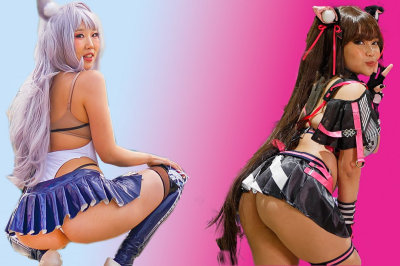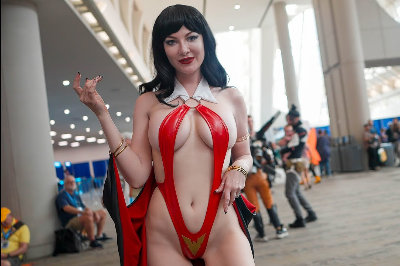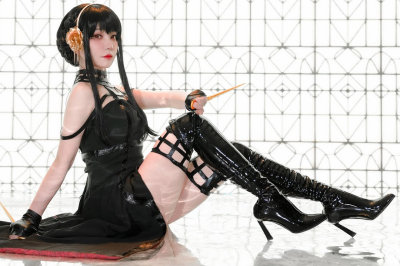HERO - Q&A with cinematographer Christopher Doyle
Born in Sydney, Doyle fled the banality of the suburbs to spend much of his early life on the road. At various points in his life he was a well digger in India, a Norwegian merchant marine, a cow herder on an Israeli kibbutz, and a doctor of Chinese medicine in Thailand.
Moving to Taiwan in the late 1970s, Doyle met such future members of the cultural elite as Hou Hsiao Hsien and Stan Lai. He was one of the founding members of the Lanling Theatre Workshop, the first modern theatre company in Taiwan; he also created the landmark television series, TRAVELLING IMAGES.
Doyle's first breakthrough took place in 1981, when Edward Yang asked him to shoot his feature debut THAT DAY ON THE BEACH. For this film, Chris Doyle picked up the Best Cinematography award at the Asia Pacific Film Festival. He returned to the road to shoot Claire Devers' NOIR ET BLANC (1986) in France, only to discover that his heart still belonged to Asia. Soon after, he headed to Hong Kong to shoot Shu Kei's second feature, SOUL (1987), a pastiche of John Cassavete's GLORIA (1980) starring noted Taiwanese directors Hou Hsiao Hsien and Ke Yizhong.
Doyle's artistic and commercial breakthrough occurred with his first collaboration with Hong Kong auteur Wong Kar-Wai in DAYS OF BEING WILD (1991). Doyle's loose, ambient style seemed to match perfectly with Wong's poetic and largely improvised script; the two quickly formed a lasting professional relationship that would prove to be mutually beneficial. Chris Doyle has collaborated with such important Hong Kong directors as Sylvia Chang in MARY FROM BEIJING (1992) and Stanley Kwan in RED ROSE WHITE ROSE (1994). He is a four-time Best Cinematography award winner at the Hong Kong Film Awards for SOUL (1987), DAYS OF BEING WILD (1991), ASHES OF TIME (1994) and FALLEN ANGELS (1995). He gained international attention with his groundbreaking cinematography in Wong Kar Wai's ASHES OF TIME (1994) for which he won the Special Jury Prize for Technical Achievement at the Venice Film Festival as well as Best Cinematography at the Taiwan Golden Horse Awards. After shooting the cult hit CHUNGKING EXPRESS (1994) and it's quasi-sequel FALLEN ANGELS (1995), Doyle adopted a more restrained look for fifth-generation filmmaker Chen Kaige in TEMPTRESS MOON (1996). Teaming up with Wong Kar-Wai again for HAPPY TOGETHER (1997), Doyle was again awarded Taiwan's Golden Horse Award for best Cinematography, as well as Best Cinematography in a Foreign Film by the Italian Association of photographers, the Hong Kong Artist of the Year Award and the Hong Kong Critics Award. In 2000, Doyle was awarded the prestigious Technical Grand Prize at the Cannes Film Festival for his work on Wong Kar Wai's IN THE MOOD FOR LOVE (2000).
Outside Asia, Chris Doyle was Director of Photography on Gus Van Sant's remake of Hitchcock's PSYCHO (1998), and has also shot Oscarâ-winning director Barry Levinson's LIBERTY HEIGHTS (1999). In the same year, he made his directing debut with AWAY WITH WORD (1999), co-scripted by film critic Tony Rayns and starring Japanese indie star Tadanobu Asano. Chris Doyle' also worked on Phillip Noyce's RABBIT PROOF FENCE and THE QUIET AMERICAN, Peter Chan's THREE and Wong Kar Wai's 2046.
Tell me a bit about how different it is to make a film in China than elsewhere.
A lot of people disregard the fact that American films look like they do because they are made by Americans. Japanese films have a certain aesthetic because they are Japanese. Even within the Chinese filmmaking community, they are extremely different in the procedure to get a film made. And to my mind Zhang Yimou is very much a product of his society and very much a product of a much more continuous filmmaking community than in, say, Hong Kong. In a way he is extremely Hollywood, at least parallel to Hollywood, there is a hierarchy, a precedent, a certain process that is much more thorough than in other places.
Zhang Yimou is reputed to be very meticulous.
It becomes a way of organising different people, thousands of people who have to have some kind of reference. Ultimately it does come down to three or four people who have to have some kind of reference. It is, at the end of the day, just that core group of people and their complicity is really what makes or breaks the film. That is what comes through to the audience. I really believe the audience is not stupid, they may not be thinking it through, but they are emoting it. It is physical presence in the making of the film. We work to find the space of the film, as I call it.
In terms of it as a Chinese film, is it deemed as a commercial film?
I think Zhang Yimou's intentions are quite clear. He wanted to break out of this so-called art-world serial type. It is also with the marketing and the way the film has been responded to and the way it was presented to a Chinese audience, it was much more aggressive than usual. What it did become, from what I heard, it was the biggest film of the year. For us HERO is more of a turning point than CROUCHING TIGER. HERO is a film that gave access to non-English language Asian films, it is an important step. It has turned a public, a distribution system, in fact the whole system has been give an axis in China. It was very much like a Western marketing strategy and it worked, which has encouraged a lot of people. The resonance it has, the axis that it gave to a market, was quite meaningful. Yes, it is a commercial film.
Is it still difficult politically to get a film made in China? There were many stories of conflicts between Zhang Yimou and the government.
First of all Zhang Yimou had just done the Beijing Olympics promotion which is a one-hour multi-media event which won us the Olympics, so he was the darling. Secondly, I think that the producers had done CROUCHING TIGER and the intent of the film was much more favourable to the government. Or maybe it was just that it was this time. There has been, especially with government agencies, a hesitation if you hit on any modern theme the possible implications are much more obvious but if you stay in a received tradition or accepted historical perspective then you are in better shape. That is why his film immediately after Hero was another martial arts film. You must never forget how frustrating it must be for a director to have made what 15 films of which only two or three have been seen by the Chinese people. I don't think we should use any judgement on this, or Western perspective, he is not making films for the West he is making films for his heart, they just happen to be accessible. He realised the only way to access his own people was to make films of a certain nature. They still have the integrity.
Were there accusations of him selling out?
Yeah, there has been a lot of that. I am the last person to judge that, because he's gone through things that I have never gone through. Like with any artistic person, it is going to be the total work that will present the person. Maybe he has this incredible plan that we don't know anything about, because he is Chinese and has grown up with all these intrigues. So maybe he has a really incredible plan that he doesn't want to divulge to anyone. I don't know that much. He has lived a very cruel life.
What kind of restrictions were put on him?
Basically his films were banned. It was an assertion of pressure, of politics, or whatever. The way he makes films now, they are going to be everywhere, because of DVD, there is no control really anymore.
How did you come up with the wonderful colour scheme in the film?
We knew the film had to have certain amount of colours, we knew one had to be red for certain historical or cultural reasons, and then the others had to be based in what the location could give us. So the lake was very blue at a certain time of day. And then there was a space where the rocks would reflect a kind of greenness. And then you have the yellow leaves. What happens with the desert, when we first saw it it looked fantastic, then what happens when you start to work with it we thought it would be the white. So what happened is we did the intelligent thing, and let the exteriors dictate the interiors. The rhetoric of colour is important and it evolves, it should be based on personal taste, it is cultural, it is about experience, all those things.
What exactly is this martial arts known as wushu?
It implies a military discipline, the "shu" bit is art. I imagine it will be the one new disicipline in the Olympics. Jet Li comes from a tradition of real fighting, it is based in the balance between body and mind. The purpose is harmony of body and mind. It is appropriate as a vehicle for certain aspects of storytelling, it is our Bollywood. And it is extremely stylised and it comes from certain traditional artforms, like Peking opera, but the stylisation is inherent in the media therefore it is only appropriate to certain kind of films.
Is there a visual tradition you drew upon?
Not me personally, of course there are elements represented, these things, any Chinese person of any integrity or education, like Zhang Yimou is, those things enter into the process of what we are doing. For me, to be honest, my Chineseness is very intuitive. That kind of stuff can enter into discussion and then I will respond to it in my own way. When I say that the colours were intuitive it is not totally true, it is a response to an extremely well thought out process.
How much done of this style is done in camera?
Ninety percent, but there was some digital help. The most obvious thing is people are flying around so you have to remove the wires. The interesting thing is that films have moved away from being special effects or non special effects films. Even the most mundane films might have some effects, and you might remove this or that digitally. That is actually a production tool not an effect thing, for example changing the light. Validly so. On Hero, because we both come from a cinematography background, we tried to get as much in camera as possible. It comes back to taste.
How about the complexities of shooting the fight scenes?
For the director it is very frustrating, especially as he had never done this kind of thing before. For me it is more of a picking and choosing what we want, that usually involves Zhang Yimou. You try as hard as you can, ultimately you have to trust what the fight co-ordinators tell you. Usually they work step by step, so it is quite an exhausting procedure, they don't necessarily know where they are going to go, they only sort of have an idea. My job it is to take the bits that I think work and say yes.
Question & Answer Text Copyright Buena Vista International



